Ford Explorer EV vs VW ID. Buzz Bus – Performance, range & efficiency compared
Two cars, one duel: Ford Explorer EV meets VW ID. Buzz Bus.
Which one wins in performance, efficiency and value for money? Find out now!
Costs and Efficiency:
Looking at overall running costs, both models reveal some interesting differences in everyday economy.
Ford Explorer EV has a clearly perceptible advantage in terms of price – it starts at 34200 £, while the VW ID. Buzz Bus costs 42900 £. That’s a price difference of around 8655 £.
In terms of energy consumption, the advantage goes to the Ford Explorer EV: with 14.50 kWh per 100 km, it’s noticeable more efficient than the VW ID. Buzz Bus with 19 kWh. That’s a difference of about 4.50 kWh.
As for range, the Ford Explorer EV performs a bit better – achieving up to 602 km, about 117 km more than the VW ID. Buzz Bus.
Engine and Performance:
Power, torque and acceleration say a lot about how a car feels on the road. This is where you see which model delivers more driving dynamics.
Both models deliver identical power – 340 HP each.
In acceleration from 0 to 100 km/h, the Ford Explorer EV is to a small extent quicker – completing the sprint in 5.30 s, while the VW ID. Buzz Bus takes 6.10 s. That’s about 0.80 s faster.
In terms of top speed, the Ford Explorer EV performs a bit better – reaching 180 km/h, while the VW ID. Buzz Bus tops out at 160 km/h. The difference is around 20 km/h.
Both models offer the same torque – 679 Nm.
Space and Everyday Use:
Cabin size, boot volume and payload all play a role in everyday practicality. Here, comfort and flexibility make the difference.
Both vehicles offer seating for 5 people.
In curb weight, Ford Explorer EV is noticeable lighter – 1908 kg compared to 2400 kg. The difference is around 492 kg.
In terms of boot space, the VW ID. Buzz Bus offers convincingly more room – 1340 L compared to 450 L. That’s a difference of about 890 L.
In maximum load capacity, the VW ID. Buzz Bus performs evident better – up to 2205 L, which is about 783 L more than the Ford Explorer EV.
When it comes to payload, VW ID. Buzz Bus hardly perceptible takes the win – 600 kg compared to 585 kg. That’s a difference of about 15 kg.
Who comes out on top?
Overall, the Ford Explorer EV shows itself to be edges out slightly and secures the title of DriveDuel Champion.
It convinces with the more balanced overall package and proves to be the more versatile choice for everyday use.
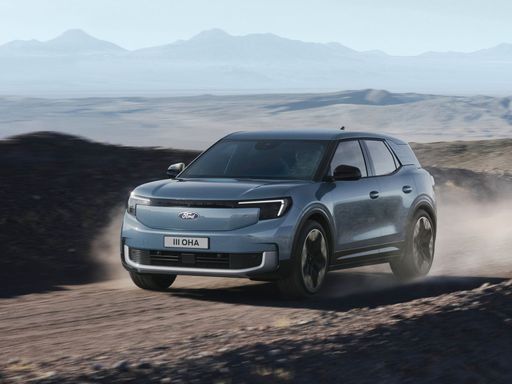
Ford Explorer EV
Ford Explorer EV
The Ford Explorer EV marks a significant step forward in the brand's journey towards electrification, offering an impressive blend of performance and sustainability. This modern SUV features a sleek design complemented by advanced technology that enhances the driving experience. With a focus on comfort and innovation, the Explorer EV aims to redefine family travel for the electric age.
details @ electricexplorer.fordpresskits.com
@ electricexplorer.fordpresskits.com
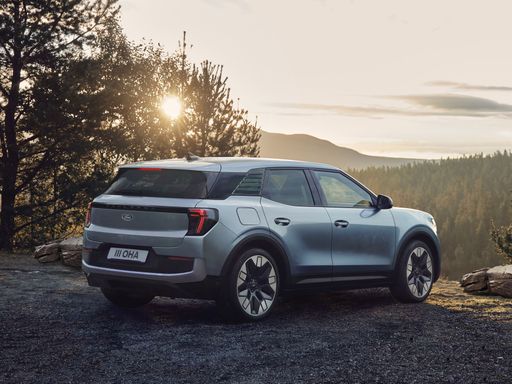 @ electricexplorer.fordpresskits.com
@ electricexplorer.fordpresskits.com
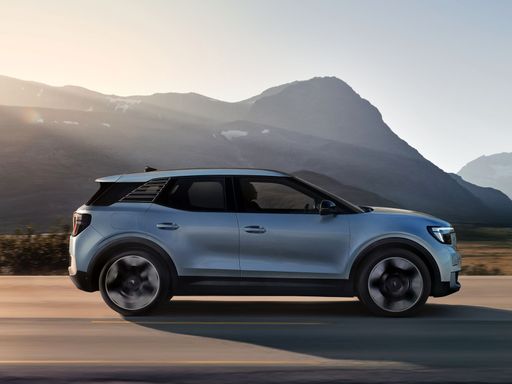 @ electricexplorer.fordpresskits.com
@ electricexplorer.fordpresskits.com
VW ID. Buzz Bus
The VW ID. Buzz Bus marks a bold step into the future with its blend of retro charm and innovative electric technology. This all-electric vehicle offers an impressive range, making it ideal for both urban driving and longer excursions. Its spacious interior and advanced connectivity features ensure a comfortable and connected journey for all passengers.
details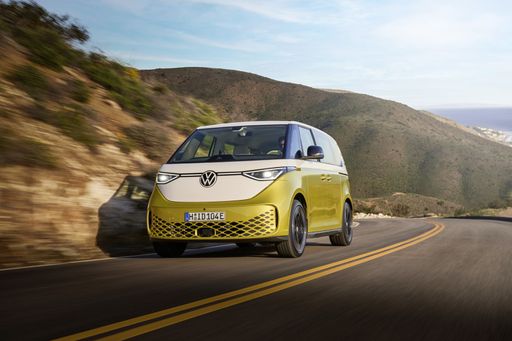 @ Volkswagen
@ Volkswagen
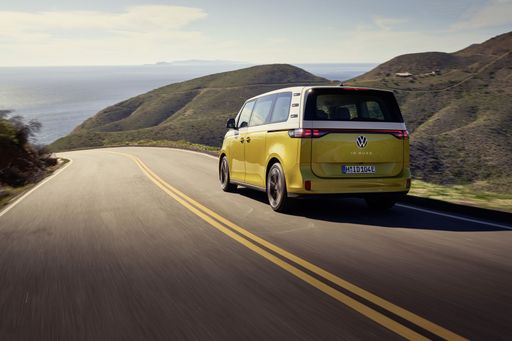 @ Volkswagen
@ Volkswagen
 @ Volkswagen
@ Volkswagen
 @ Volkswagen
@ Volkswagen
 @ Volkswagen
@ Volkswagen
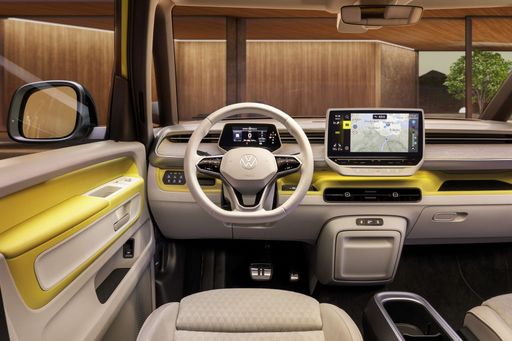 @ Volkswagen
@ Volkswagen
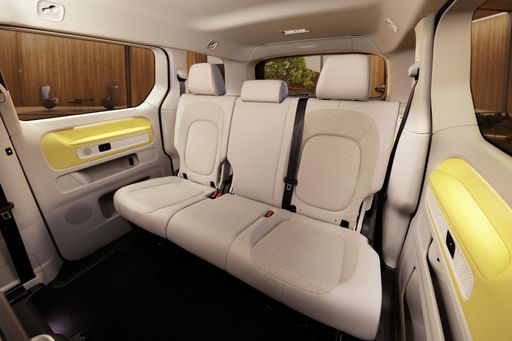 @ Volkswagen
@ Volkswagen
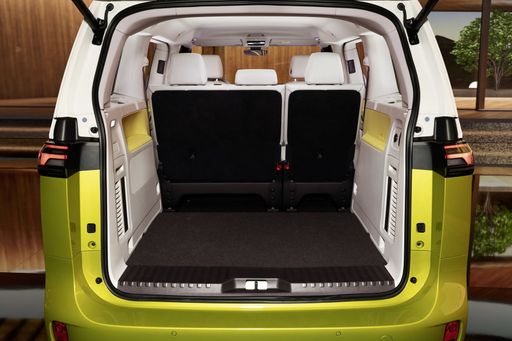 @ Volkswagen
@ Volkswagen
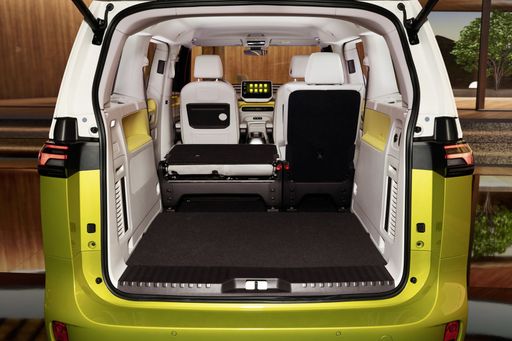 @ Volkswagen
@ Volkswagen

|

|
|
|
|
Costs and Consumption |
|
|---|---|
|
Price
34200 - 48800 £
|
Price
42900 - 64200 £
|
|
Consumption L/100km
-
|
Consumption L/100km
-
|
|
Consumption kWh/100km
14.5 - 17.2 kWh
|
Consumption kWh/100km
19 - 20.6 kWh
|
|
Electric Range
360 - 602 km
|
Electric Range
329 - 485 km
|
|
Battery Capacity
52 - 79 kWh
|
Battery Capacity
59 - 86 kWh
|
|
co2
0 g/km
|
co2
0 g/km
|
|
Fuel tank capacity
-
|
Fuel tank capacity
-
|
Dimensions and Body |
|
|---|---|
|
Body Type
SUV
|
Body Type
Bus
|
|
Seats
5
|
Seats
5
|
|
Doors
5
|
Doors
5
|
|
Curb weight
1908 - 2179 kg
|
Curb weight
2400 - 2780 kg
|
|
Trunk capacity
445 - 450 L
|
Trunk capacity
1121 - 1340 L
|
|
Length
4468 mm
|
Length
4712 - 4962 mm
|
|
Width
1871 mm
|
Width
1985 mm
|
|
Height
1630 - 1639 mm
|
Height
1924 - 1927 mm
|
|
Max trunk capacity
1417 - 1422 L
|
Max trunk capacity
2205 L
|
|
Payload
561 - 585 kg
|
Payload
462 - 600 kg
|
Engine and Performance |
|
|---|---|
|
Engine Type
Electric
|
Engine Type
Electric
|
|
Transmission
Automatic
|
Transmission
Automatic
|
|
Transmission Detail
Reduction Gearbox
|
Transmission Detail
-
|
|
Drive Type
Rear-Wheel Drive, All-Wheel Drive
|
Drive Type
Rear-Wheel Drive, All-Wheel Drive
|
|
Power HP
170 - 340 HP
|
Power HP
170 - 340 HP
|
|
Acceleration 0-100km/h
5.3 - 8.7 s
|
Acceleration 0-100km/h
6.1 - 10.7 s
|
|
Max Speed
160 - 180 km/h
|
Max Speed
145 - 160 km/h
|
|
Torque
310 - 679 Nm
|
Torque
310 - 679 Nm
|
|
Number of Cylinders
-
|
Number of Cylinders
-
|
|
Power kW
125 - 250 kW
|
Power kW
125 - 250 kW
|
|
Engine capacity
-
|
Engine capacity
-
|
General |
|
|---|---|
|
Model Year
2024 - 2025
|
Model Year
2024
|
|
CO2 Efficiency Class
A
|
CO2 Efficiency Class
A
|
|
Brand
Ford
|
Brand
VW
|
What drive types are available for the Ford Explorer EV?
The Ford Explorer EV is available as Rear-Wheel Drive or All-Wheel Drive.
The prices and data displayed are estimates based on German list prices and may vary by country. This information is not legally binding.
